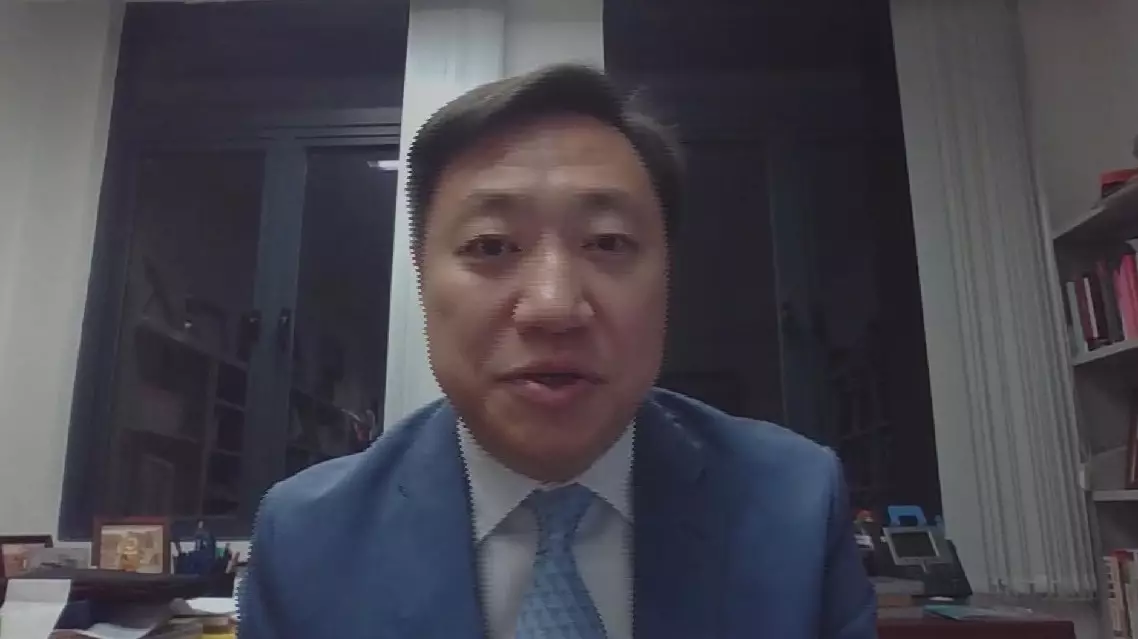Sam Hou Fai, who got elected by an overwhelming majority as the sixth-term chief executive designate of the Macao Special Administrative Region (SAR) on Sunday, is poised to bring positive change to the area, according to a scholar.
Sam won the election with 394 votes in favor out of 398 valid ballots. Song Man Lei, president of the Electoral Affairs Commission for the Chief Executive Election, announced Sam as the winner.
According to Macao's Chief Executive Election Law, an election is valid if two-thirds of the 400-member election committee are present to vote. To be elected, a candidate must receive support from more than half of the committee's members, which is at least 200 votes.
Speaking with China Global Television Network on Sunday, Wang Chao, the assistant dean of the Faculty of Law at the University of Macao, said Sam's success is inevitable because of a number of reasons.
"First of all is his engagement with the local community, which means he listened to the voice of the public. In the last two months of time and in the newspaper, we always saw him actively engaged with different sectors and local community, visiting them and listening to their views and concerns. Secondly, I think is his detailed policy proposals. His policy agenda identifies several key issues facing Macao. And the solutions he offered in his policy agenda to address these issues are actually supported by the general public," Wang said.
Since Macao returned to the motherland in 1999, Macao has achieved success in numerous areas. It is often regarded as a model for implementing the One Country, Two Systems principle, with impressive economic vitality, social stability, and strong sense of national identity and belonging.
Once a small town with a sluggish economy and a lack of social security, Macao has emerged as a safe and prosperous metropolis with international acclaim in merely a quarter century.
In 2023, Macao's per capita GDP grew by 80.5 percent year on year to 559,000 patacas (around 70,000 U.S. dollars), more than four times the figure in 1999.
The unemployment rate also dropped significantly from 6.3 percent then to 2.7 percent in 2023.
The city has also drawn upon its unique history to build up distinctive advantages as a major platform linking China and Portuguese-speaking countries and has actively participated in the Belt and Road Initiative.
When being asked about potential changes and continuities for Macao under Sam's leadership, Wang listed three areas, namely institutional capacity development, economic diversification and social welfare improvement.
"The first is to enhance institutional capacity in the public service which he considers as a key to promoting high-quality development in Macao. And the central idea here is a citizen-centered approach. And second is the economic diversification to reduce Macao’s dependence on the gaming industry with a goal of a long-term sustainability of the region, and for here the changes that we may find is a better business environment that is more friendly to the development of new industries, such as the traditional Chinese medicine and the high-tech," he noted.
"And in relation to this economic diversification is the talent development. From this part, we anticipate that there will be more highly-qualified professionals attracted to Macao that will enhance the competitiveness of the region, and there will be more cooperation between universities in Macao and mainland that will provide more opportunities for Macao’s students and to improve educational quality in Macao," Wang continued.
"Lastly, on his policy focus, on how to improve social welfare and what we will see from here might be changed on social security, housing, public health and accessibility to public service, which will, I think, improve the living standards or the quality of life of local residents. I believe his policy agenda has the potential to bring positive change to Macao," the scholar said.

Newly elected chief executive designate to bring positive changes to Macao: scholar









